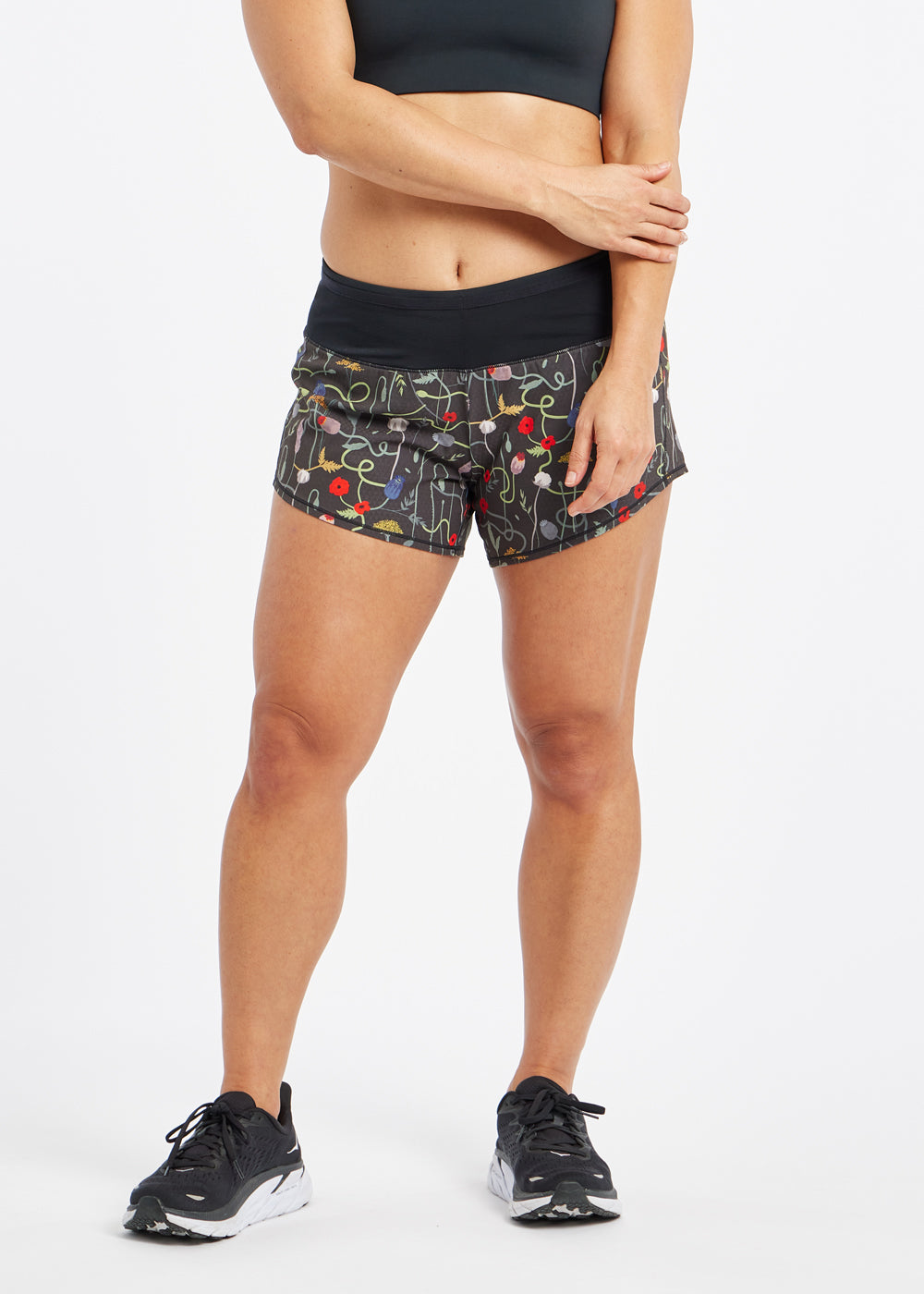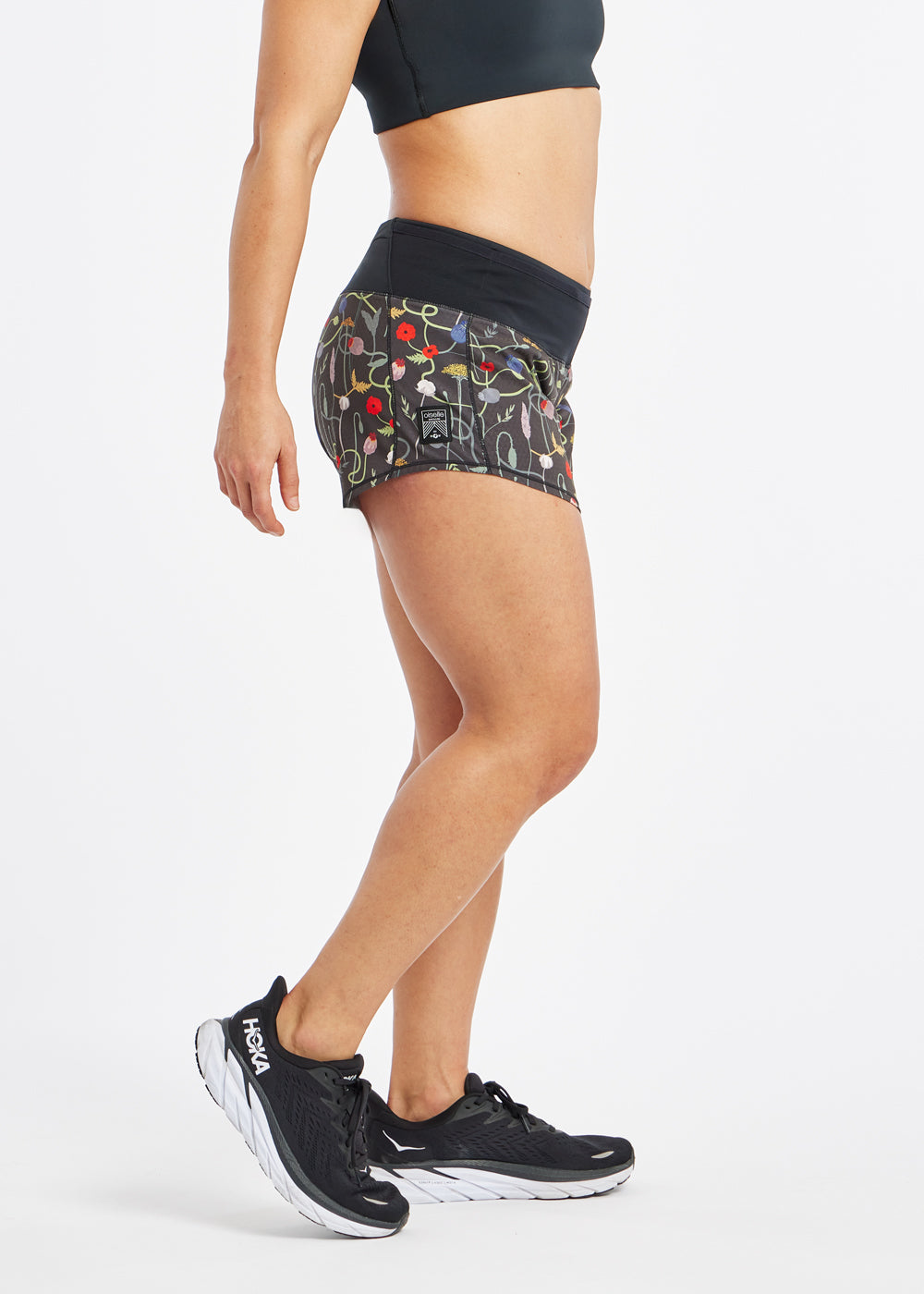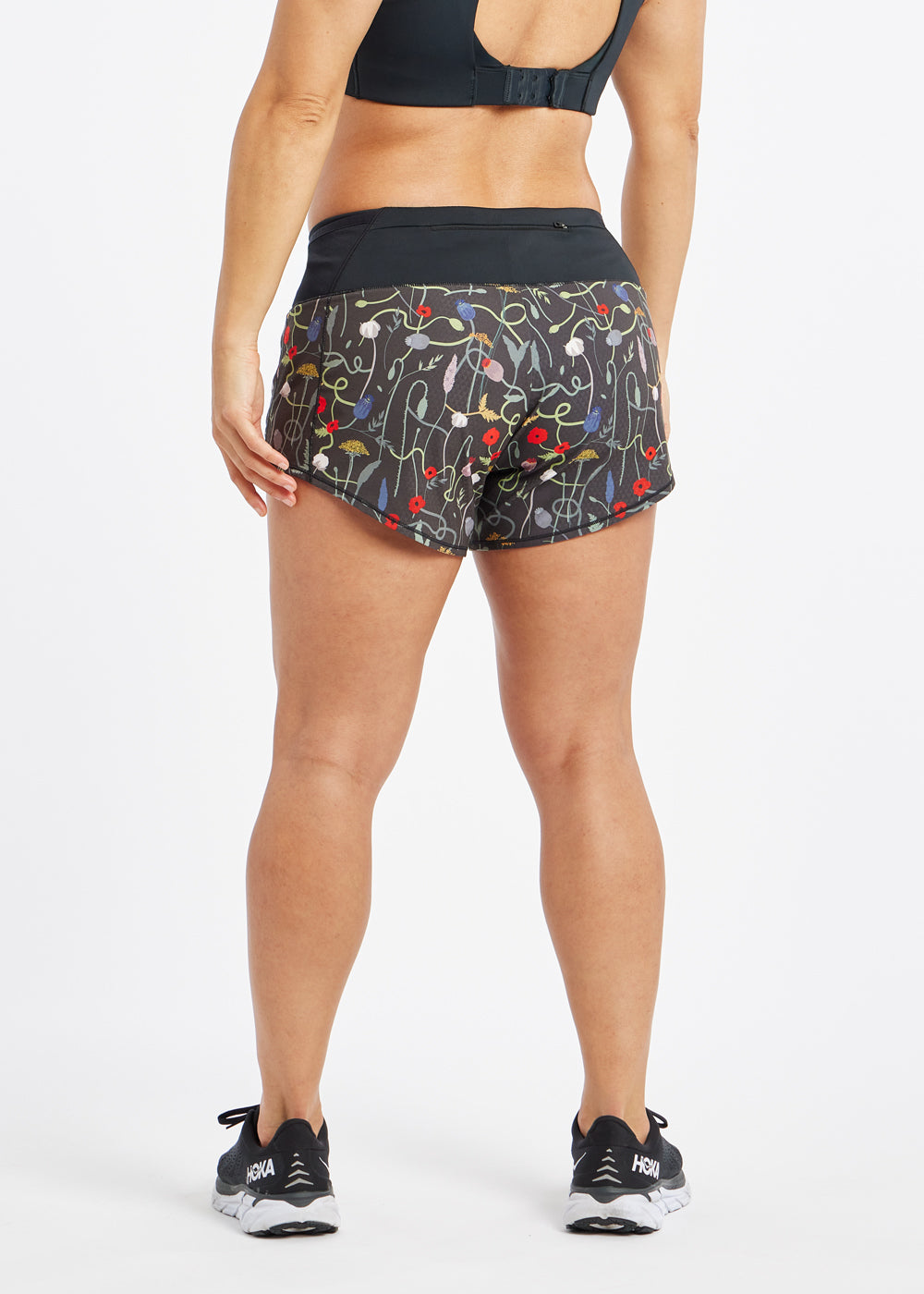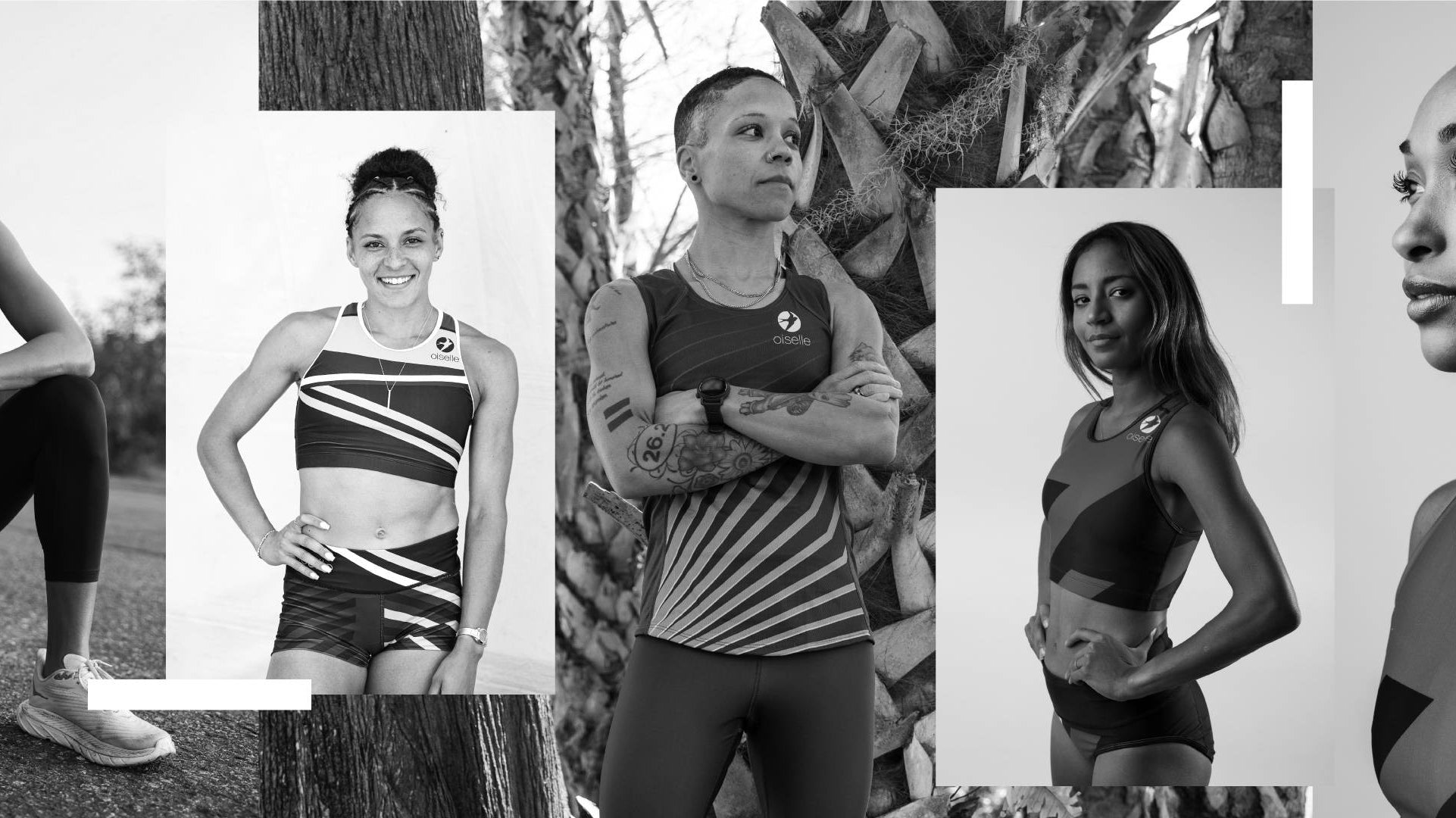Sally: One of my favorite my favorite racing memories of you was the Olympic Trials Marathon in 2012. That was a crazy race, coming down to you, Shalane, Desi, and Amy Hastings in the final miles. With Amy on your heels, what was going through your mind, and how did you will yourself to pull away?
Kara: The 2012 race was a high-stress situation. I was coming off of a very serious injury and didn’t start running again until 11 weeks out from the race. I had a new coach and a new team. I felt like I was in a pressure cooker! But the day of the race I felt remarkably calm. As the pack whittled down to four athletes left, I knew a move had to be made to drop one of the athletes. Shalane and Desi started to pick up the pace and even though I knew the pace was too hot for me, I decided to gamble and go with them for one mile and see if it dropped Amy. Even though she had just surged in the race, my gut was telling me that she was struggling and I thought I had a window to break her. So I ran that mile a little too hard with Shalane and Desi until I could feel myself pulling away from Amy. After that I slowed down a bit but still kept the pressure on as best I could. With 3 miles to go my coach yelled that I had broken clear and that I should go after Desi, but I was happy to just protect my spot and earn my position on my second Olympic team.

Sally: You've been very open about your struggles with mental confidence. To be honest, it's been so helpful for other runners who suffer the same way, but maybe are afraid to talk about it. What gave you the courage to talk? Rather than sticking to the traditional storyline of athlete as flawless hero?
Kara: Honestly there wasn’t like this moment where I just said “enough! I’m going to show everyone my biggest weakness!” It happened over time. After years of hiding my feelings and fears I sort of lost it all at the finish of the Boston Marathon in 2009. I felt like I had let everyone down and the tears just came and even though I tried to hold them in they just kept coming and coming. After that I started to care less and less about trying to “act tough” and just slowly started showing who I truly was. I guess letting all the emotion out in Boston started it. And then I finally shared in a Runners World article that I have always, since I started running, struggled with my confidence. That article got so much positive feedback and honestly, I was just happier to be myself in front of others. No more fronts, no more pretending to be something that I’m not. It’s made my life so much richer and better to just be me openly and honestly.
Sally: Do you think that women athletes, more often than men, get painted as "head cases" or "heady?" Have you ever had to defend your ability in the face of such criticism?
Kara: Oh yes. I have been called a “crybaby”, “overly emotional”, and a “total head case” more times than I can count. It used to hurt my feelings because people said it under the context of it being a weakness. But now I just don’t care. I feel things in such a deep and intense way. It’s just the way that I am wired. But it doesn’t make me weak. In fact, I think that it is an advantage in life. It makes me really feel and experience the highs and the lows, and it makes me empathetic towards other people. Just because I cry with emotion doesn’t mean I’m not as strong or tough as the next guy.
Sally: Training journals are common. But I remember once you said you used a "success log" as well. Can you tell me about that, what it is, and how you'd use it?
Kara: I keep what is called a “confidence journal”. I keep it along with my training journal. After I write what my workout was for the day in my workout journal, I jot a note down in my confidence journal. I have to find one positive thing about my workout, even if it went terribly. It’s a great tool to flip through and I can see how strong I have been and how much I have fought through in my training. I’m actually publishing a confidence journal this year so I’ll be sharing much more about that in the coming months!!
Sally: As an observer, it seems like boastful talk to get in a competitor's head is not as common in long distance running or the marathon as it is in, say, wrestling or maybe sprinting. Have you ever had someone get in your head before a competition, and if so, how did you get them out?
Kara: Marathoners are not typically outwardly boastful, but I’ve raced plenty of people that have made statements that I knew were directed at me. They were said in a way to intimidate me or make me doubt my preparation. I’ve learned that the only thing I can control is myself. It’s not helpful to focus on other people’s training or words before a big race. I beat plenty of people in the 2016 Olympic Trials Marathon who had done some workouts I could not do. It’s best for me to focus on myself, my journey, my strengths. That’s where the confidence journal comes in. When I can focus on myself solely I usually run pretty great.

Sally: You told me once that when the chips are down, and it gets hard in a race, you go to "the psycho place." Can you tell us about the psycho place? Is it like a house party, Blair Witch Project, ... other? As usual - the fans want to know!
Kara: When I really want something, I am willing to go to really dark places mentally to get it. I am willing to go to that psycho place. For me, it’s a mental place that I am willing to go to where I am willing to accept a lot of pain to get what I want. The 2012 Olympic Marathon Trials was the perfect example. I had not done the proper preparation to be on that team but I went to the dark cave in my head. I just accepted the pain and the dread and the agony. I just took it all and was willing to be in that dark place to make the team. It’s a state of mind where you are willing to accept a horrible mental battle and a painful physical one as well. It doesn’t always work out, but the payoffs can be huge! Mentally I can’t go there every time I race. It has to be something super important to me, something I am willing to go through a lot of crap for!























































































































































